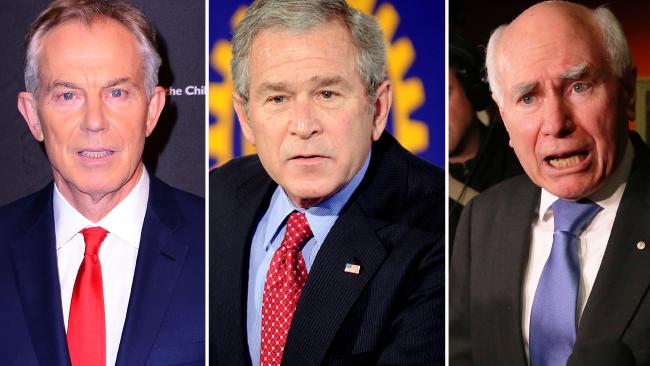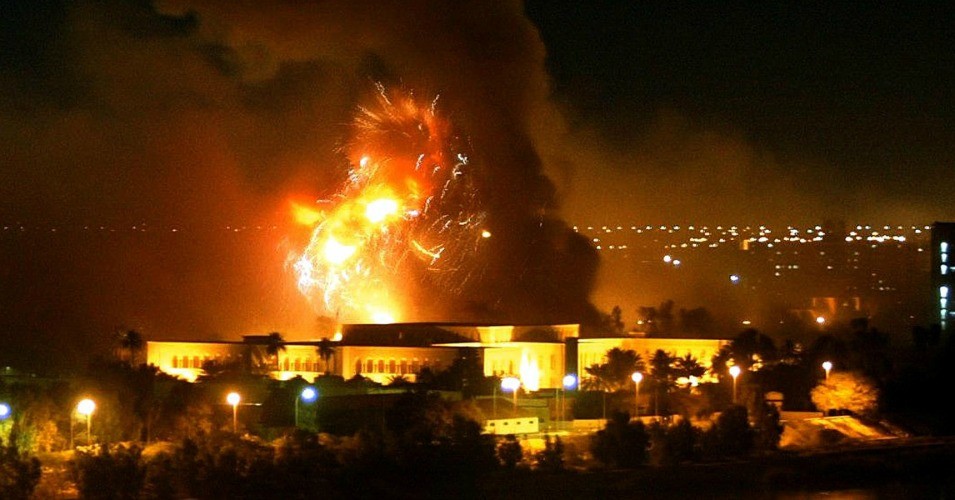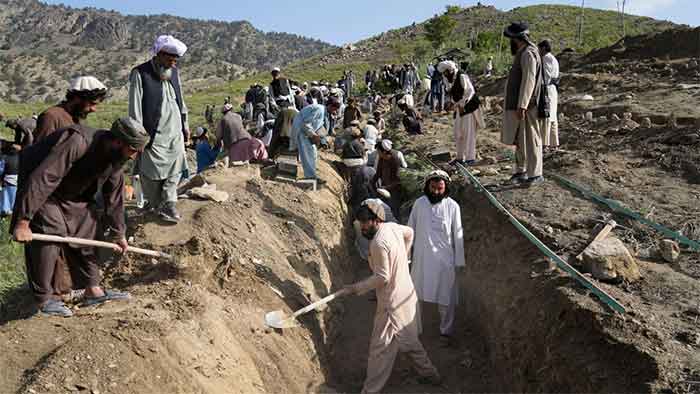
When war criminals can daub canvasses in blithe safety, rake in millions of dollars in after dinner speeches and bore governments to death with their shoddy words of wisdom, the world is not so much as it should be, but merely as it is. Former US President George W. Bush, former British Prime Minister Tony Blair, and tag along bore, former Australian Prime Minister John Howard, remain at large, despite their respective countries wagging fingers of disapproval at authoritarian regimes for defying the rules-based international order. Never a more fitting trio in terms of abusing international law could you find.
In 2003, this culpable troika sneered, ignored and soiled such international institutions as the United Nations, the rule of law, the legacy of the Nuremberg trials, and a number of conventions, by invading Iraq. The country, weakened and crippled by years of sanctions, leaving its hospital system crushed with bulky lists of dead children (all worthwhile, according to the late former Secretary of State, Madeleine Albright), was apparently a mortal threat to Western civilisation.
The Baathist regime, led by Saddam Hussein, was purportedly armed to the teeth with a doomsday inventory of Weapons of Mass Destruction (WMDs) that he was bound to use at any given moment against freedom loving types in Washington, London and Canberra. (It is true he had previously had such weapons, much of it supplied by Western arms corporations with the blessing of intelligence agencies such as the CIA.) He had, apparently, refused to disarm, obdurate in the face of United Nations weapons inspectors. And he had flirted with those evil representatives of cataclysmic eschatology, al-Qaida, despite being hostile to such millenarian groups. The report card, spottier than ever in the shadow of the attacks of September 11, 2001 on the United States, suggested that he had to go. The results: lusty sectarian violence, a catastrophically devastating, often imbecilic occupation by US-led forces, the seeds of emboldened fundamentalism, the offshoot movements such as Islamic State, and multigenerational trauma.
With another new year beckoning, the Australian National Archives have released approximately 240 cabinet papers from 2003 on the decision-making process behind a number of policy decisions. A few snippets are offered regarding road to war. Cabinet’s National Security Committee had kept an eye on developments in Iraq, though the released materials do little to reveal what, precisely, took place in conversations between Howard and Bush.
In September 2002, one document notes how “cabinet noted an oral report by the prime minister on his discussion with the president of the United States on the American position in relation to efforts by Iraq to secure and maintain weapons of mass destruction.” A fortnight later, the then-foreign minister Alexander Downer, is noted as furnishing cabinet with an “oral report” regarding “developments” regarding the proposed UN Security Council resolution on the Saddam regime’s “possession of, and attempts to secure or maintain, weapons of mass destruction, and on the prospects for passage of the resolution”. That such oral revelations were not accompanied by thick, detailed submissions, is telling about the obedient, inevitable train of thinking afflicting the Howard government. A war, started by Washington, would come, and Canberra would be along for the ride.
By March 2003, Howard was demanding action. He informed members of his cabinet that Bush had issued Saddam with an ultimatum of thuggish import. “Saddam Hussein and his sons,” the US president stated, “must leave Iraq within 48 hours. Their refusal to do so will result in military conflict commenced at a time of our choosing.”
Howard was drunk with intelligence assessments from the United States, including such claims that Iraq had put out feelers for yellowcake in Niger. Couple this with such stretched confections as non-state terrorist actors, hankering for WMD spoils from sponsor states, and the prime minister was swooning. In 2013, his cringeworthy apologia given to the Lowy Institute reflected on the fictitious Niger angle as “unmistakable” in its “strength”. Had it been accurate – a sly way of escaping the prosecutor’s legal brief – and Saddam “left in place, only to provide WMDs to a terrorist group, for use against the US, the Administration would have failed in its most basic responsibility to protect the nation.” When crooks of state are found out, they tend to cite public duty as appropriate justification.
As far as legality for any military intervention outside the formal channels of authorisation of a UN Security Council, Howard was armed with a memorandum signed by a first assistant secretary from the Department of Foreign Affairs and Trade and his equivalent from the Attorney-General’s Department. Fantastically and irresponsibly, the cod ordinary advice suggested that Australian involvement in an invasion would be entirely legal, given the Saddam regime’s recalcitrance in not allegedly complying with previous Security Council resolutions. It seems that the public servants in question, instead of offering a panoramic view about the pitfalls of a dangerous adventure in the Middle East, were merely keen to satisfy the bloodletting urges of their political paymasters.
The cabinet minute from March 18, 2003 showed agreement from the Attorney-General with the spurious reasoning of the first assistant secretaries. It also noted that the Australian Governor-General, Peter Hollingworth, holder of that old office of the British empire as the monarch’s representative, had been consulted. Approval from him, however, was not mandatory.
Cabinet, won over with no evident demurral, and previously buttered up by oral reports, approved the measure to commit Australia to another failed military mission of murderous, bungling incompetence. The United States would receive no resistance in getting its pound of Australian flesh for an illegal enterprise, and the Australian public, many of whom had participated in some of the largest anti-war demonstrations the country had ever seen, would be ignored.
Dr. Binoy Kampmark was a Commonwealth Scholar at Selwyn College, Cambridge. He currently lectures at RMIT University. Email: [email protected]














































